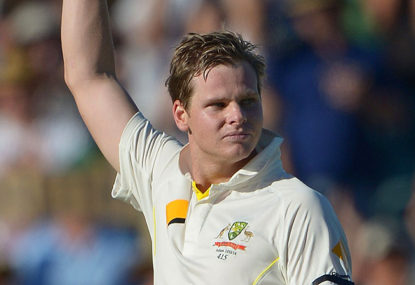WATCH; IPL bowler fuming after getting robbed of near-certain wicket by... Spider-Cam
Harshal Patel was not a happy man!

Americans love a seven-game series. Even if you believe it’s overkill, there’s no doubting the system categorically decides a worthy winner. It is a true series in every sense of the word.
Test cricket had that comprehensive nature about it for a long time, either through timeless Tests or a minimum three-match series. But now the only series to go beyond three matches are the Ashes and the four-Test Border–Gavaskar Trophy.
Look at the calendar for the next few months and we have two-Test series between England and New Zealand, Australia and West Indies, South Africa and Bangladesh, plus a one-off Test between Bangladesh and India.
It is sad to see fixtures, particularly England vs New Zealand and Australia vs West Indies reduced to a paltry two matches. It doesn’t feel right but there’s the small fact of three different formats to contend with, including various lucrative domestic Twenty20 leagues.
With shortened tours becoming the norm on the calendar the ICC needs to look at adapting its own women’s Ashes points system to the men’s game for certain tours.
This system combines a one-off Test, Twenty20 and ODI matches to decide who wins the Ashes. While there have been teething problems surrounding the weighting of points for the various formats, the system has at least provided intrigue to the one-off Test and made the T20s and ODIs mean more.
This year’s women’s Ashes will see three ODIs played, each worth two points, followed by the Test match worth four points for a win or two points for a draw. It concludes with three T20s, also worth two points.
In the men’s game, the ICC has been keen to try a World Test Championship after getting rid of the ODI Champions Trophy in 2011. The concept has been cancelled twice, but plans are in place to use the Test rankings over a four-year period to determine the top four teams to play off. A timeless Test has been touted as a possible final decider.
There’s no reason that concept couldn’t work alongside the combined three-format points system for an individual tour.
In terms of the men’s game, the three format combo has merit particularly when Zimbabwe, Bangladesh and hopefully in the future Ireland are involved. 10 years from now you can imagine Ireland fancying their chances of a series win against one of the big teams by trying their best to draw the Test match and then focusing on winning the T20s and pinching an ODI.
In golf, outside the majors the biggest event is the Ryder Cup. It works because of the rivalry between the United States and Europe, plus the different formats of the game – Fourball, Foursomes and individual match play – all have unique strategies.
It’s the same with tennis and the Davis Cup. The doubles on the second day means so much more in the context of the tie, as opposed to a standard doubles match in a Grand Slam tournament.
The three formats of cricket should be seen as a strength of the game and the scheduling can reflect that. An official series of different matches is better and more meaningful than pretending a one-off Test match decides which country is best overall.